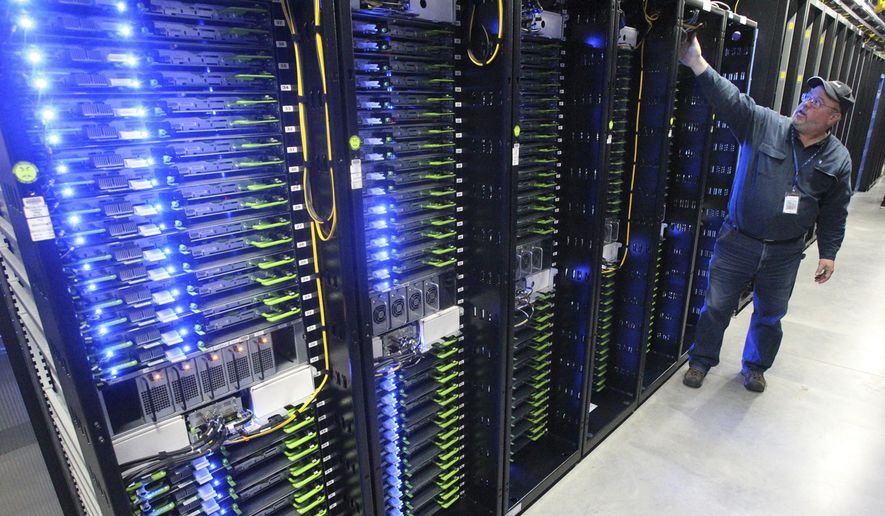RICHMOND, Va. (AP) — As Virginia has emerged as a top global market for data centers, tax breaks to attract some of the world’s richest companies to the state have exploded, new records show.
Enacted a decade ago, sales and use tax exemptions for the large warehouses full of computers that function as the brains of the internet accounted for more than $65 million in uncollected state revenue last fiscal year, by far the biggest type of tax break the state offers.
Amazon, a major player in the data center industry, owns five of the 25 data centers eligible for tax breaks. Other major tech and financial companies with data centers are also eligible, including Microsoft, Capital One, Bank of America and Visa. The incentives can also apply to tenants at certain data centers, which include major companies like Alibaba, Facebook and Apple.
Supporters say the incentives are a crucial reason for Virginia’s success in the market and the industry is a major boost to the state’s overall economy. Critics say the tax breaks are an unnecessary giveaway to a healthy industry that would still thrive in Virginia without them.
States are increasingly offering lucrative incentives to attract the data centers, which can cost hundreds of millions of dollars to build and equip, but employ relatively few workers. That means they produce little in the way of new income taxes but could provide a surge in property and sales taxes for both state and local governments, if they collect them.
Although Virginia forgoes sales and use tax revenues for certain large data centers, some local governments have reaped massive benefits. Loudoun County says data centers help bring in $150 million in local taxes each year.
The Virginia Economic Development Partnership tracks companies eligible for the tax breaks but said it doesn’t collect data on which companies actually take the credits and for how much. VDEP’s records from January show all but one of the 25 data centers eligible for the tax breaks are in Northern Virginia and the Richmond area, or within an easy drive.
Virginia has about 700 data processing, hosting and related establishments, but to be eligible for the state tax breaks on computers and related equipment, companies have to spend at least $150 million and meet certain hiring and salary thresholds.
Nearly 70 percent of the data centers eligible for state tax breaks are in Loudoun, Fairfax and Prince William counties, some of the wealthiest counties in the country. Northern Virginia, and Loudoun in particular, has become a top tier destination for data centers thanks to a strong digital infrastructure, relatively low energy costs, available land, proximity to federal agencies and an educated workforce.
The data center incentives’ dizzying growth in a few years from nothing to the state’s biggest business tax break - more than double the next largest segment in fiscal 2016 - is prompting some lawmakers to promise a closer look.
“It’s something we need to revisit,” said Del. Chris Jones, a top Republican lawmaker and chairman of the state House Appropriations Committee.
The legislature’s watchdog agency is examining the data center breaks’ effectiveness as part of a broader look at economic development incentives.
Buddy Rizer, the head of the Loudoun County’s economic development office, said the state tax incentives have been crucial to the success of his county, the self-declared “home of the internet” where about 70 percent of all web traffic flows through each day.
Rizer said the state risks a “real danger” of seeing the centers move elsewhere without the tax breaks because more and more states are offering them more lucrative incentives.
“You will not be competitive without this to somewhat level the playing field,” he said.
A report commissioned by the Northern Virginia Technology Council, an influential trade group that represents data centers, said the centers were responsible for creating 43,000 direct and indirect jobs and $10.2 billion in “economic output” in 2016.
But Kasia Tarczynska, who analyzes the effectiveness of data center incentives at the nonprofit group Good Jobs First, said tax incentives have little impact on where companies decide to locate. She said Virginia would still be a top destination without public subsidies.
“The idea for tax incentives is to help start something that would not happen if not for that tax incentive,” she said. “You don’t need to support a healthy industry.”




Please read our comment policy before commenting.